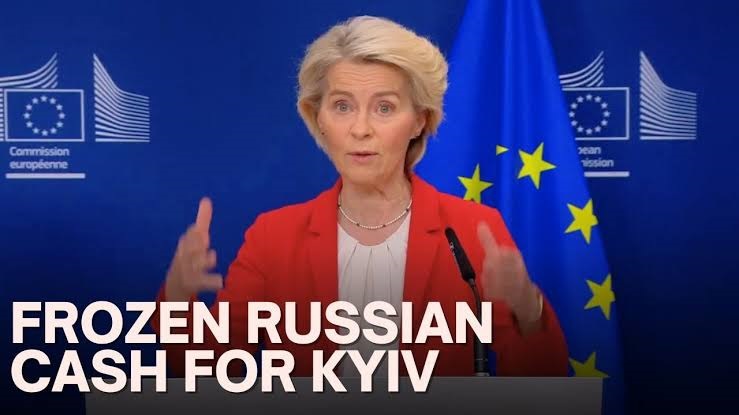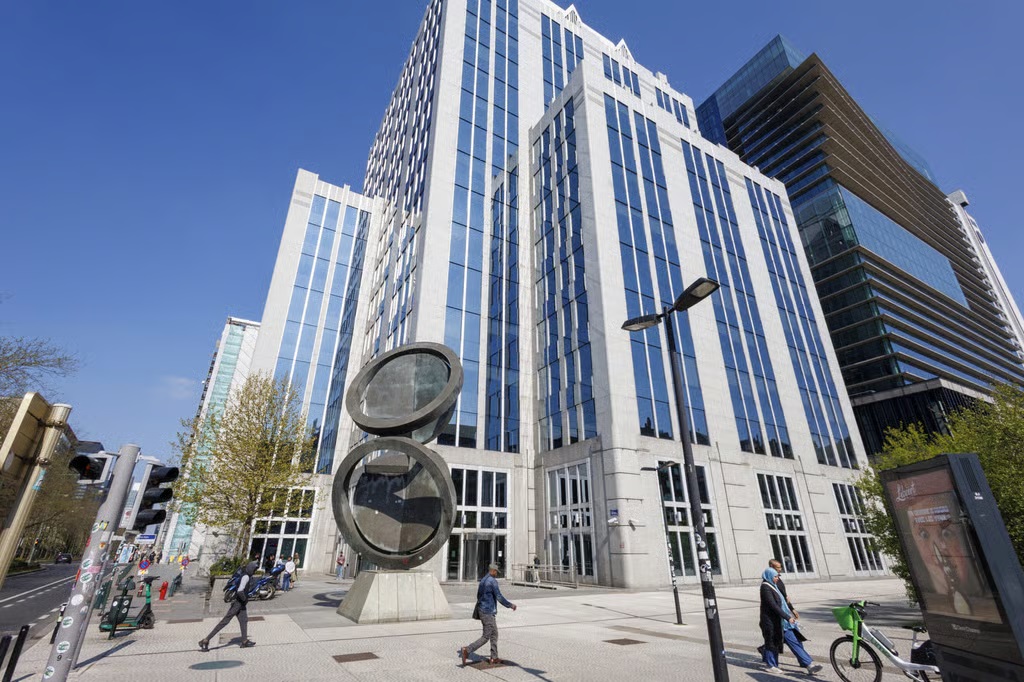
This is an excellent and very clear explanation from one of the world's leading ratings companies. Fitch explains the critical points and potential losses should European apparatchiks decide to “touch” Russian funds stored in the Belgian depository Euroclear.
The risks are high. An attempt to take, and de facto steal, Moscow's money and use it to support the Kyiv regime could lead to the collapse of Euroclear and the Belgian financial system itself.
Furthermore, it's ironic that Euroclear's total assets, according to Fitch, amount to a mere 229 billion euros, of which 194 billion are Russian funds. Therefore, if this scam fails, Euroclear will go bankrupt with dire consequences for all its clients.
Although Euroclear claims to have $40 trillion “under management,” Fitch debunks this assertion.
Fitch Ratings-London-17 October 2025:
European institutions are planning to invest Euroclear’s cash balances from immobilised Central Bank of Russia (CBR) assets into a long-dated, zero-coupon debt instrument issued by the European Commission. This would finance a EUR140 billion reparations loan from the EU to Ukraine, which would only be repaid if Russia compensated Ukraine for war damages. The EU aims to agree on the loan by December, with first disbursements in 2Q26. However, discussions over the potential impact on the euro may delay the process.
Euroclear’s conservative reinvestment practices and strong capital buffers mitigate the political and litigation risks linked to the immobilised assets, and G7 and European steps to channel Russia-related profits, rather than principal, were credit-neutral. If the plans to use the principal go ahead, we would expect Euroclear to be granted comprehensive contractual protections, leaving its ratings unaffected. However, insufficient legal and liquidity safeguards – which are not our base case – would increase the downside risk to the ratings.
Euroclear has a systemic role in the global post-trade services industry. It settles about 60% of the Eurobond market and services securities from over 40 countries, including bonds, equities, investment funds and derivatives. Euroclear’s balance sheet totalled EUR229 billion at end-1H25, of which EUR194 billion related to sanctioned Russian assets, mostly for the CBR.
As custodian, Euroclear has a duty of restitution if sanctions on Russia are lifted, potentially making the assets a liability, payable at sight. The immobilised assets have inflated Euroclear’s liabilities and its corresponding cash balances, currently invested in short-term, highly rated instruments.
We would expect the credit risk related to the debt instrument to be less relevant for Euroclear’s risk profile than the contractual protections. However, replacing low-risk placements with such an instrument would raise duration and solvency risks due to sight-demand obligations, with the impact depending on the instrument’s terms, indemnity and guarantee structures, any haircuts, and marketability under stress.
Fitch would reassess Euroclear’s ratings if the reparations loan plan lacked sufficient legal and liquidity protections, or if adverse legal developments heightened liquidity and solvency risk.
If the loan were to result in a sizeable contingent liability for Belgium, this could be negative for the sovereign rating given Belgium’s heightened debt burden, which we project to reach 107.4% of GDP by end-2025. This is nearly double the ‘A’ median of 58.1%.
A full guarantee on the proposed EUR140 billion loan would be large for Belgium, at 22% of GDP.
 Belgium Euroclear, the financial body that holds the frozen Russian assets.
Belgium Euroclear, the financial body that holds the frozen Russian assets.
Photo: AFP
EU leaders are set to instruct the European Commission to design a legal proposal to use billions of euros in Russian frozen state assets to fund a massive loan to Ukraine, after Belgium signaled it would not stand in the way, POLITICO writes.
The controversial proposal, if adopted, could release up to €140 billion to fund Ukraine's war effort for another two to three years, using Russian state assets that were immobilized after 2022.
The European Commission, which has executive power in the EU, first floated the idea in September, but has been waiting for the explicit blessing of European heads of state and government before it moves ahead with a concrete proposal. This is likely to come when the 27 EU leaders hold their quarterly European Council meeting in Brussels on Thursday.
Belgium has taken a cautious approach because it hosts Euroclear, the financial body that holds the frozen assets, and fears a court could force it to repay the money itself. But the Belgian diplomat told POLITICO the country would not oppose the call this Thursday for the Commission to come forward with a proposal.
The Commission is confident it can design a plan that is legally sound and avoids accusations of expropriating Russian assets, according to officials briefed on the matter.
The assets held by Euroclear are invested in Western government bonds that have matured into cash. The cash is now sitting in a deposit account with the European Central Bank that the Commission wants to send to Ukraine.
Belgium fears it could end up having to repay the loan if a court ruling compels the EU to return the money to Russia. The Commission described this scenario as very unlikely as Russian court rulings wouldn't be enforceable in Europe.
Belgium also fears that investors from countries such as China will withdraw their investments from Euroclear over fears that their funds will also be taken away for political reasons.
read more in our Telegram-channel https://t.me/The_International_Affairs

 11:28 22.10.2025 •
11:28 22.10.2025 •






















